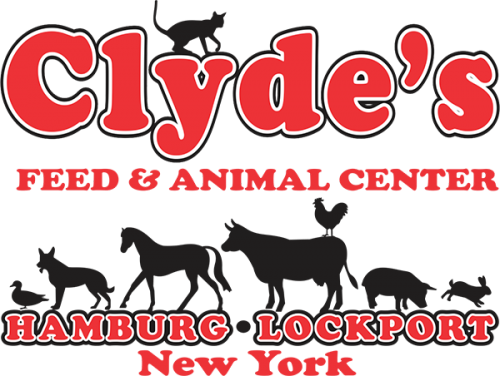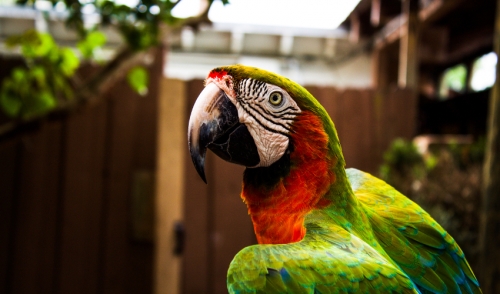A pet bird can be a wonderful addition to your family, but are you properly equipped to meet your new feathered friend's needs? This checklist can help you be prepared to give your bird a long, healthy, enriching life from the first moment you bring it home.
20 Things You Need When You Bring Your New Bird Home
- Bird Book
A good book about your bird species can be a treasure trove of information for how to care for your bird. Macaws, doves, finches and other birds have very different needs, and an informational book will be a good resource to answer questions about your new pet.
- Cage
Your bird will need a home, and a sturdy, safe cage is essential. The cage's size and proportions should be suitable for your bird species, and it should be in good repair so there are no sharp edges that could be dangerous.
- Cage Stand
Your bird's cage needs to be in a safe, secure place. A proper stand will support the cage and minimize the risk of tips or falls that can be disastrous for your bird. Moveable stands are also ideal to give your pet an occasional change of scenery.
- Litter, Bedding and Liners
Good liners will make cage cleanup much easier, and proper litter or bedding on the bottom of the cage will absorb waste and spilled water to keep the cage cleaner and minimize smells. Use only bird-friendly products, however – rodent or cat litters are toxic to birds.
- Perches
Your bird will need places to stand and roost in its cage. Several perches at different heights give your bird options and encourage climbing. Both wooden and rope perches are ideal, and perches should be the proper diameter for your bird's feet.
- Hideaway
Birds need a private place to retreat if they feel anxious, stressed or frightened. A small, cozy basket or cave-like structure in the cage will give your bird that hideaway to feel more comfortable and at ease.
- Cage Cover
A cage cover can turn your bird's entire cage into a snug, quiet hideaway. This can help your bird keep calm or reduce noise if the bird is agitated by something they see. Choose a cover that fits the cage's shape and size to be sure it will not easily slip off.
- Toys
A bored bird can develop both behavioral problems and health issues, but providing different toys for your pet can keep it entertained. Bells, swings and other bird-friendly toys can be positioned in the cage and should be swapped regularly to keep your bird engaged.
- Nesting Material
Birds will instinctively arrange bedding and other materials into nests, and providing grass or hay for nesting will give your bird a creative outlet for construction. Whether or not you intend to breed your bird, nesting material can be another entertainment option for it.
- Pellet Food
Specially formulated pellet foods are ideal for feeding pet birds, and include all the fiber, vitamins and minerals your bird needs for a nutritious meal. There are several formulas available, however, so be sure to choose one that best suits your bird's needs.
- Seed Mixes
Seed is another common dietary staple for pet birds, and pet bird mixes includes different types of seeds, grains and other treats, such as dried fruit or nuts, that your bird will love. Choose a blend that is suited to your bird's size and dietary preferences.
- Treats
The occasional treat can be a great part of your bird's diet, and should include fruits, vegetables, nuts, seed sticks and other items. Do not offer too many treats, however, and take note of which foods to avoid giving your type of bird because they may be toxic.
- Food Dish
No matter what food you're feeding your bird, you will need an appropriate dish in which to offer each meal. Dishes should be hard to tip over and sturdy enough that they can withstand abuse by your bird's beak and talons.
- Waterer
Your bird will need continual access to clean, fresh water. A hanging water bottle is easiest because the water cannot get contaminated, but some birds may feel more at ease drinking from an open dish.
- Mineral Supplements
Some birds have special dietary needs or health concerns and may need mineral supplements. Cuttle bones, mineral blocks, calcium-enriched feed and other options are available, and should be given only as needed to keep your bird healthy.
- Spray Bottle
A small spray bottle is a great way to give your bird a safe, comfortable shower so it can preen and keep its feathers in peak condition. Many pet birds prefer these showers rather than more vigorous bathing.
- Cleaning Supplies
You should have sponges, an old toothbrush and appropriate cleaning products available – bleach, vinegar, enzyme-based cleaners, whatever you prefer – on hand so you can keep your bird's cage, perches and dishes clean and fresh.
- Travel Cage
While you want your bird to enjoy its home, it will need to travel occasionally to see the veterinarian or groomer, or to be boarded if necessary. A small, sturdy travel cage or crate will keep your bird safely contained for these essential trips.
- Avian Veterinarian
Before you bring your bird home, you ought to know where your local avian veterinarian is and what bird species they are familiar with so you can feel comfortable with any medical care your bird may need. Taking your bird in for a preliminary checkup is always a good idea.
- Time
It is essential that you have bonding time with your bird when you first bring it home so the bird will feel comfortable and safe in its new space. Bringing your new bird home at the beginning of a weekend or vacation is ideal so it can settle in with you close by.
As you and your bird get used to one another, you may discover more supplies that will make both your lives easier. These basics, however, will ensure you are ready to care for your new pet bird properly right from the beginning of what will hopefully be a long and happy relationship.






Comments